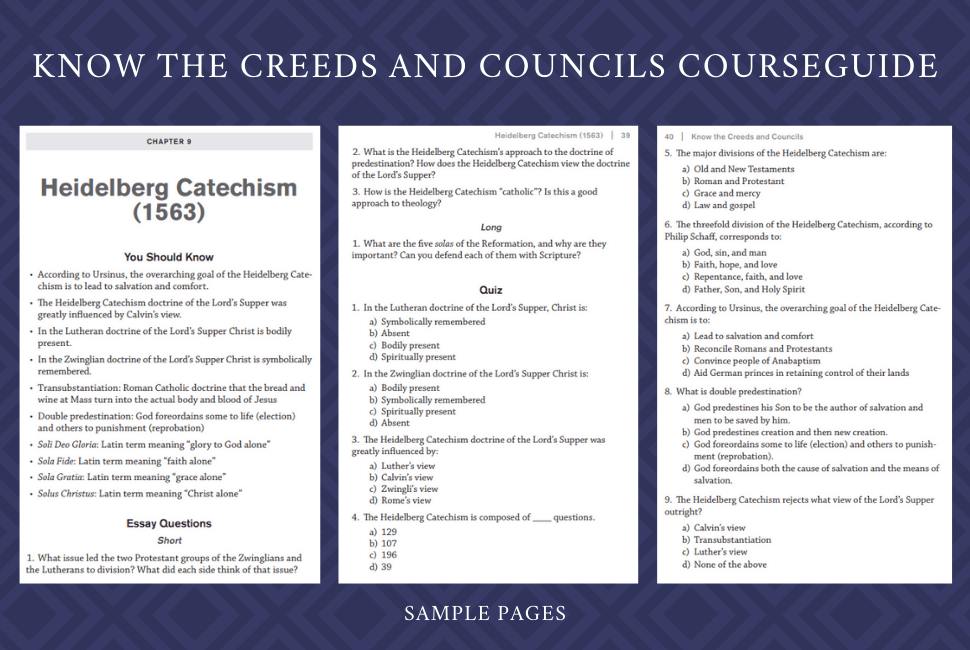Today’s post is excerpted from Justin S. Holcomb’s Know the Creeds and Councils and is sponsored by MasterLectures.
Today’s Christianity is directly affected by what earlier Christians chose to do and to believe.
Obviously, Christianity did not begin when we were born. Nor did our generation invent Christian thought. We live two thousand years removed from the time of our founder, and—for better or for worse—we are the recipients of a long line of Christians’ insights, mistakes, and ways of speaking about God and the Christian faith.
The fact that Christianity developed—that the sixteenth century, for instance, looked very different from the third, and that both looked very different from the twenty-first—can sometimes lead us to wonder what the essential core of Christianity is. As a result, some people decide to ignore history altogether and try to reconstruct “real Christianity” with nothing more than a Bible.
But this approach misses a great deal. Christians of the past were no less concerned with being faithful to God than we are, and they sought to fit together all that Scripture has to say about the mysteries of Christianity—the incarnation, the Trinity, predestination, and more—with all the intellectual power of their times.
To ignore these insights is to attempt to reinvent the wheel, and to risk reinventing it badly.
In this video, Justin S. Holcomb explores this tension:
The main difficulty is untangling the language of the church of the past, particularly for those of us who do not have time or energy to devote to historical studies. In the Know the Creeds and Councils Video Study, available on MasterLectures, you’ll discover the main historical developments in Christian thought.
After watching this series you will come away with a deeper and better understanding of how the church has wrestled with what continues to be the most important questions about Christian belief.
Each video is brief and to the point. For each creed, confession, catechism, or council, you’ll learn the historical background; you’ll get a short summary of the content, and you’ll get some thoughts on contemporary relevance.
If you sign up for MasterLectures using the code TIMCHALLIES, you’ll get 14 days free, plus 50% off your first three months should you determine to continue. You can, of course, cancel at any time. Your subscription will give you unlimited access to the Know the Creeds and Councils series, plus access to more than 2,000 additional videos.
Free CourseGuide Included
When you watch the Know the Creeds and Councils videos on MasterLectures, you’ll also get free access to a 64-page CourseGuide that will help you follow along. For each video, the CourseGuide provides you with:
- The key items you’ll know after watching
- A list of short and long reflection questions to think through as you watch
- A short quiz, to help you test your knowledge of the material covered in each video
See for yourself:

Whether you’re studying alone or working through the material with your family or your students while you’re at home, this CourseGuide will help you get the most out of the videos. The Know the Creeds and Councils CourseGuide is normally $9.99, but it is included free in MasterLectures.
P.S. If you’re looking for even more to watch, take a look at Tim’s post, One Way To Make the Most of Being Housebound with Your Family, for a list of recommendations.










